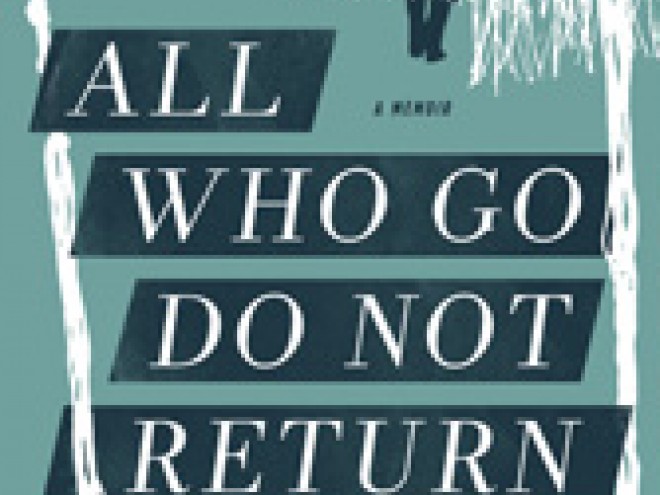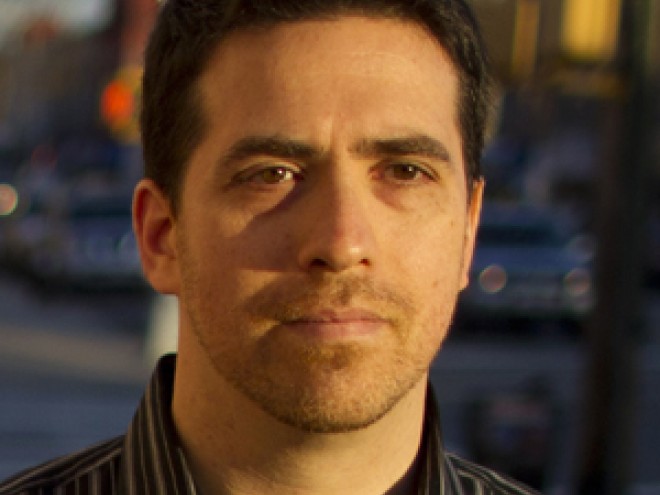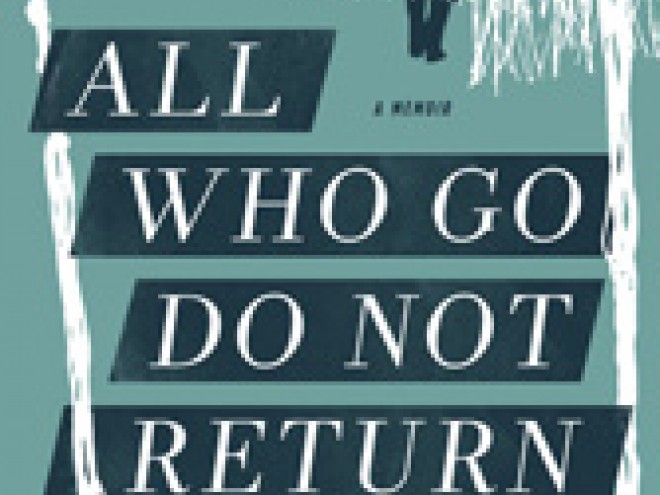 The Jewish Book Council is delighted to publish a continuing blog series in partnership with Ask Big Questions, an initiative out of Hillel International aimed at getting people to talk about issues of heart, soul and community. Each month, Ask Big Questions will feature a JBC author on their blog, shared here on the JBC ProsenPeople blog page, and in campus programming reaching over 10,000 college and graduate students.
The Jewish Book Council is delighted to publish a continuing blog series in partnership with Ask Big Questions, an initiative out of Hillel International aimed at getting people to talk about issues of heart, soul and community. Each month, Ask Big Questions will feature a JBC author on their blog, shared here on the JBC ProsenPeople blog page, and in campus programming reaching over 10,000 college and graduate students.
Shulem Deen is the author of All Who Go Do Not Return, a memoir about growing up in and then leaving the Hasidic Jewish world. He is also the founding editor of Unpious, an online journal for voices on the Hasidic fringe. His work has appeared in Salon, The Brooklyn Rail, Tablet Magazine,The Jewish Daily Forward, and elsewhere. He serves as a board member at Footsteps, a New York City-based organization that offers assistance and support to those who have left the ultra-Orthodox Jewish community. He lives in Brooklyn, New York.
For the past three weeks, ever since the release of my book, All Who Go Do Not Return, I have been getting this question at least once a day: “Where is your anger?”
My book is a memoir of growing up in and then leaving the Hasidic world. From my current vantage point, I and many others see the society and community I grew up in as deeply problematic. From its education system to its economic structures to its social dynamics, the Hasidic community restricts its members’ freedom even when those members desperately wish to live differently. At present, the practices are such that by the time Hasidic men and women are mature enough to know themselves and their own aspirations, they are married with children, and highly dependent on the community and their social and familial connections in order to survive.
 When I left, seven years ago, I was 33, after having established a family and, along with my then-wife, was raising five children within the all-Hasidic village of New Square, New York. My book recounts the experience of first losing faith, then feeling trapped within a society whose beliefs I did not share and whose worldview I came to fundamentally reject. At first, I stayed, because I feared the consequences of leaving, until I realized that a fear-based life, lying and hiding every day — to my wife, to my children, to my friends and neighbors — was too psychically devastating, and too morally corrosive. And so I made the decision to leave. I suffered for it, and lost a great deal, but I made my way out and survived to tell of it.
When I left, seven years ago, I was 33, after having established a family and, along with my then-wife, was raising five children within the all-Hasidic village of New Square, New York. My book recounts the experience of first losing faith, then feeling trapped within a society whose beliefs I did not share and whose worldview I came to fundamentally reject. At first, I stayed, because I feared the consequences of leaving, until I realized that a fear-based life, lying and hiding every day — to my wife, to my children, to my friends and neighbors — was too psychically devastating, and too morally corrosive. And so I made the decision to leave. I suffered for it, and lost a great deal, but I made my way out and survived to tell of it.
Now, some of my friends who are still within, look to me and say, “Shulem, where’s your outrage? Where’s your condemnation of this society? Why aren’t you working to change things for us?”
With this, I am being called on to tell more than just my story. I am being asked to take on the role of activist. Of the one who rails against the ills of a particular society, and seeks to change it. And such a role makes me deeply uncomfortable. And to that, I have had to say no.
To be sure, I have not rejected activism entirely. As a writer and author on the subject of leaving the Hasidic community, I have been deeply involved in efforts to build community among those who’ve left, to allow voices on the fringes of the Hasidic world to be heard; I also serve on the board of Footsteps, an organization that assists those who wish to leave the Hasidic world.
My activism, however, is limited to supporting those who wish to leave. I am here to help people transition, to offer them choices and enable a richly fulfilling life that is self-determined, not imposed, not lived by compulsion, out of fear, or due to social, familial, or economic pressures.
But I do not seek to fundamentally change the society and community I come from. To that, when called upon, I say no.
I would like to say yes. There are indeed systemic problems with the Hasidic world. They stem not from faith. Or from tradition. Or from false beliefs. But from the complexities of ordinary humanness. Good people doing bad things, because their societies haven’t developed the frameworks to protect against them.
Children ripped from parents, when those parents leave the fold; men and women with unorthodox beliefs ostracized; violence committed against individuals who refuse to conform. These occurrences point to systemic problems in how Hasidic society is formed, and how its members trained and conditioned. And these things are worth fighting against.
But I have to say no. Someone else can take it up, but not I.
An activist spirit requires a degree of moral certitude that I do not have. To be an activist, to offer full-throated condemnations of systems and practices that others believe to be correct, requires not only the knowledge that one is right, but also passion and conviction — the kind of passion and conviction that often blinds one to the complexities of lived experiences. The activist cannot afford ambivalence. The activist, in order to remain tireless, to remain active despite the inevitable exhaustion that comes from working against powerful forces, must be clear in what he or she is fighting for. And to maintain such clarity requires giving up on seeing nuance and shades of complexity.
I would have liked to say yes. I have family and friends within the Hasidic world, and I want them to have better lives, greater opportunities, more fulfilling and enriched futures. I have children and siblings and many nieces and nephews within the Hasidic world, and I want a better world for them.
But I do not have that activist temperament, and this question — “Why are you not angry?” — gets to the heart of it. I am not angry because I know the Hasidic world too well; I know that most Hasidic parents want the best for their children. Most Hasidic teachers want the best for their students. I know this, because for a good part of my life I was a deeply devout Hasid like any other, and I wanted then the same things they want. It was not anger that led me away, but an accident of fate, encounters with certain books, and certain individuals, and certain ideas. I had no deep and true grievances against Hasidic society when I lost my faith, and so I lack the passion, the furious energy that would drive me to change a world I have deliberately chosen to dissociate from.
I am not an activist, because I am not angry enough.
However, I am troubled, and so I look to others who are angry, and hope that it will spur them to action.
“Why are you all so angry?” many in the Hasidic world often ask of those who leave. We hear this as a condemnation, as if our anger points to some character flaw, some failure on our part to retain our collective composure. And it’s true, many of my friends who have left are indeed angry, traumatized by past abuses, enraged over the injustices that have led many of them away. It does not please me that they are angry, because anger is a difficult emotion to have. But it does give me hope. Because I do not see it as a character flaw. I see it as the essential motivating trait that will drive one or many to bring about change in a society that desperately needs it.
I am not angry enough, furious enough, and so when asked to step up as an activist for change, I say no.
But I look to those who do have that rage, that fury, that truly righteous and holy indignation, and I am grateful, because it is they who will one day say yes.
Shulem Deen is the author of All Who Go Do Not Return, a memoir about growing up in and leaving the Hasidic Jewish world, out last month from Graywolf Press. Follow him on Twitter at @shdeen
Related Content:
- Read Shulem Deen’s Visiting Scribe posts
- Leah Vincent: The Ultra-Orthodox Backlash
- Michael Levin: Encountering the Hasidic Enclave
Shulem Deen is a former Skverer Hasid and the founding editor of Unpious. His work has appeared in The Jewish Daily Forward, Tablet, and Salon. He lives in Brooklyn, NY.


